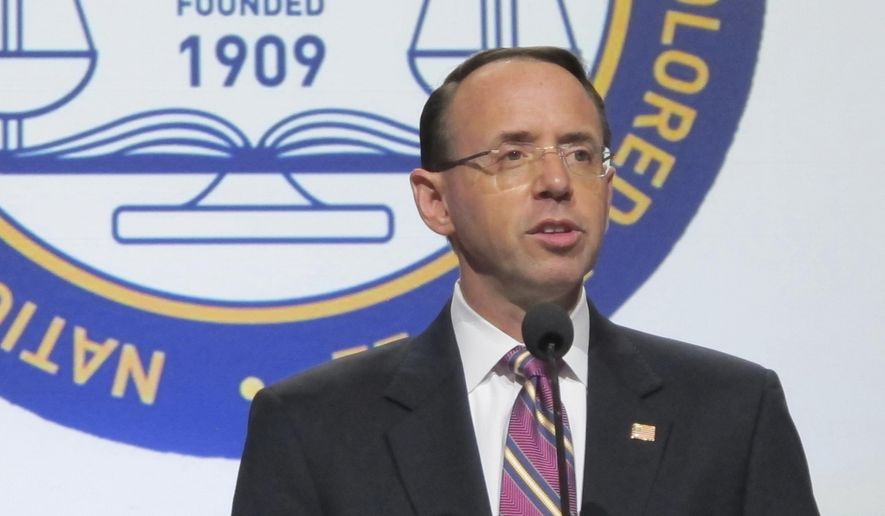
The Justice Department on Tuesday announced criminal indictments against two Chinese nationals who officials say oversaw the illegal manufacture and distribution of the synthetic drug fentanyl and other opioid-based substances in the United States.
While unclear whether the two men will even be brought to the United States to face the charges, as China and the U.S. have no extradition treaty, authorities say 21 people were charged as part of the investigation.
Most of the fentanyl illegally distributed in the U.S. has links back to China, said Deputy Attorney General Rod Rosenstein, underscoring the importance of investigations that can break up the supply chain bringing the drugs to the U.S.
“Chinese fentanyl distributors are using the Internet to sell fentanyl directly to U.S. customers,” Mr. Rosenstein said, noting that individuals charged in this case used multiple identities to disguise their drug shipments and orchestrated payments with the cryptocurrency bitcoin. “They take advantage of the fact that the fentanyl molecule can be altered in numerous ways to create a fentanyl analogue that is not listed as illegal under U.S. and Chinese law.”
The cases against the two Chinese manufacturers, 40-year-old Xiaobing Yan, and 38-year-old Jian Zhang, both stem from incidents in the U.S.
Mr. Rosenstein said the case against Mr. Yan began with a 2013 traffic stop in Mississippi that unearthed a domestic drug ring selling synthetic cathinones and cannabinoids. The investigation eventually led back to Mr. Yan, who authorities said operates at least two chemical plants in China.
The case against Mr. Zhang started with the 2015 fatal fentanyl overdose of an 18-year-old in Grand Forks, North Dakota. In addition to money laundering, and criminal conspiracy charges, Mr. Zhang is also charged with conduct resulting in the deaths of four people.
Mr. Rosenstein said the Justice Department is working with counterparts in China to stem the flow of drugs, and while he would not comment on whether the two Chinese nationals would eventually be brought to the U.S., he said authorities remain hopeful the Chinese will take action.
“They are in fact helping us, but we need them to do more,” Mr. Rosenstein said.

0 comments:
Post a Comment